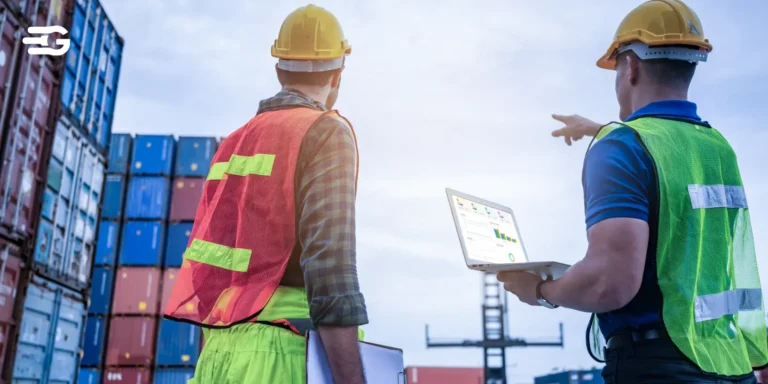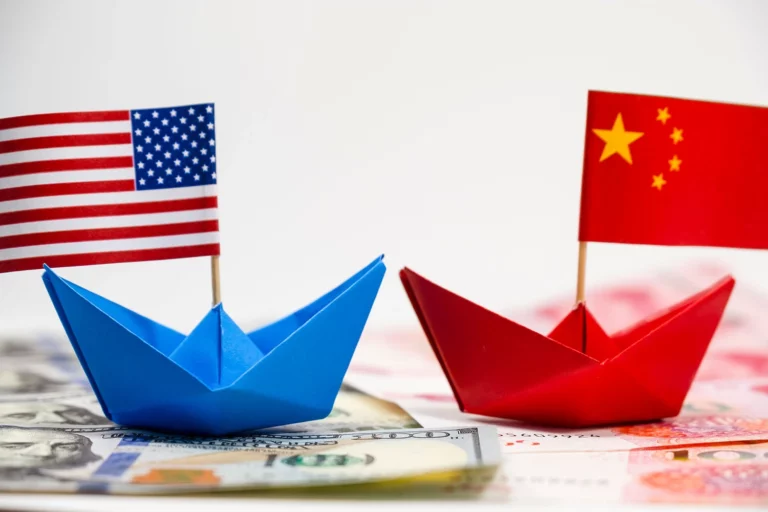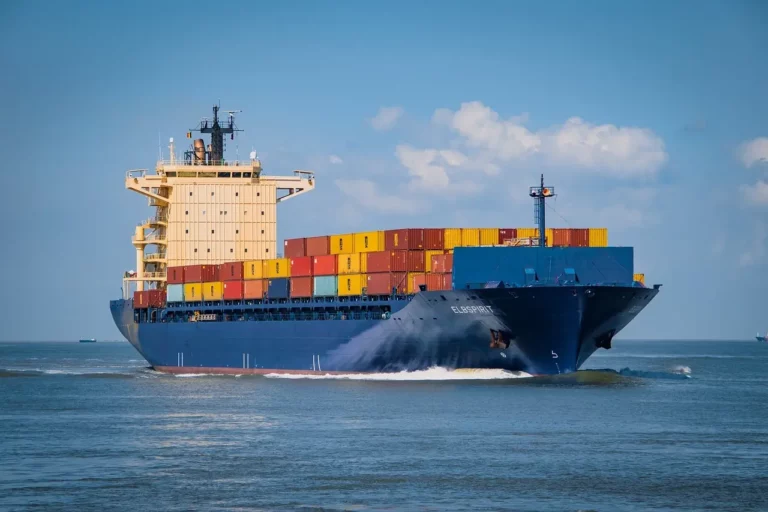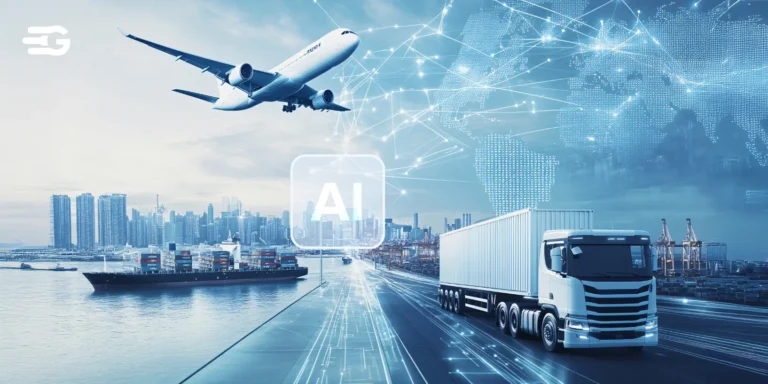6 Reasons Maritime AI™ Container Tracking is Important
Modern supply chains demand precision in tracking container movements across global networks. Maritime AI™ transforms traditional container tracking from reactive monitoring to predictive intelligence that drives operational excellence. This technology processes millions of data points from vessels, ports, and weather systems to deliver unprecedented visibility into container logistics.
We recognize that effective tracking goes beyond knowing where containers are. It provides actionable insights that prevent disruptions, reduce costs, and enhance customer satisfaction.
Our experience with logistics managers reveals a common frustration: traditional tracking systems provide data without context. We watched one client spend hours manually checking carrier websites for updates on delayed shipments. After implementing Maritime AI™ container tracking, their team gained real-time visibility and predictive alerts that transformed their operations from crisis management to strategic planning.
Reason 1: Enhanced Accuracy in ETA Predictions
Maritime AI™ algorithms deliver significantly more precise ETA predictions than traditional tracking methods. Advanced machine learning models analyze historical shipping data, current weather patterns, and real-time vessel movements to generate accurate arrival estimates. Companies using AI-powered ETA predictions achieve 96% accuracy rates compared to 55% accuracy from traditional carrier estimates.
The technology processes vast datasets, including port congestion levels, vessel performance metrics, and seasonal shipping patterns. This analysis enables predictions that remain accurate 2-4 weeks ahead of arrival, showing 30% better performance than standard carrier estimates. These improvements translate directly into operational benefits for logistics teams.
Deep learning models continuously adapt to changing maritime conditions. Weather disruptions, port strikes, and routing changes are automatically factored into ETA calculations. This adaptive capability ensures predictions remain reliable even during unexpected events that traditionally disrupt supply chains.
Our Maritime AI™ platform demonstrates these benefits through real-world application. We provide tracking container visibility that integrates ETA predictions with operational planning tools. This integration enables teams to coordinate warehouse operations, customs clearance, and transportation resources with unprecedented precision
Reason 2: Real-Time Visibility Across the Supply Chain
Maritime AI™ provides comprehensive real-time visibility into container location, status, and condition metrics. Advanced tracking systems monitor containers using satellite data, AIS signals, and IoT sensors to deliver continuous updates throughout the shipping journey. This visibility extends beyond location to include environmental conditions like temperature and humidity for sensitive cargo.
Traditional tracking systems often experience data delays of several hours or days. Maritime AI™ eliminates these gaps by processing multiple data streams simultaneously. Real-time updates enable companies to reduce inventory levels by up to 30% through improved forecasting and control.
Port congestion tracking represents a critical component of real-time visibility. The technology monitors congestion levels at major ports worldwide, providing advance warning of potential delays. This information enables logistics teams to make proactive routing decisions and adjust downstream operations accordingly.
Our Track and Trace platform exemplifies comprehensive real-time visibility. We aggregate data from multiple carriers into a single dashboard, eliminating the need for manual tracking across different systems. Our customers report significant improvements in operational efficiency through centralized visibility management.
Reason 3: Effective Exception Management
Exception management capabilities filter routine shipments to highlight critical delays and deviations. Advanced AI systems analyze thousands of containers simultaneously and identify those that are significantly late or early, allowing teams to focus on urgent issues that require immediate attention. This filtering prevents information overload while ensuring critical problems receive prompt resolution.
Traditional tracking approaches treat all shipments equally, making it difficult to prioritize responses to disruptions. Maritime AI™ exception management platforms highlight only the 110 critically delayed shipments out of 4,000 total tracked containers. This targeted approach enables efficient resource allocation and faster problem resolution.
Automated alerts provide detailed explanations for delays and disruptions. The system identifies specific causes such as port congestion, vessel rollovers, or weather delays. This diagnostic capability enables logistics teams to take appropriate corrective action rather than simply waiting for updates.
Exception management reduces manual monitoring requirements by up to 80% while improving response times. Teams receive automated notifications about significant deviations, allowing them to focus on strategic activities rather than routine tracking tasks. This efficiency improvement directly impacts operational costs and customer satisfaction.
Reason 4: Operational Efficiency and Cost Reduction
Maritime AI™ tracking systems deliver substantial cost savings through improved operational efficiency. Companies implementing AI-powered container tracking report 15% reduction in logistics costs and 35% improvement in inventory management. These improvements stem from better visibility, accurate ETAs, and proactive exception management.
Demurrage and detention cost reduction represents a major financial benefit. Accurate ETA predictions enable better coordination of container pickup and delivery schedules. Companies achieve up to 70% reduction in demurrage costs through improved planning and faster response to delays.
Route optimization capabilities further enhance cost efficiency. Real-time data on vessel movements, weather conditions, and port congestion enables dynamic route adjustments. This optimization reduces fuel consumption, shortens transit times, and minimizes exposure to operational risks
Our Container Tracking Software demonstrates these cost benefits through automated monitoring and alerting. We eliminate manual tracking overhead while providing actionable insights that drive operational improvements. Our customers report significant savings through reduced administrative costs and improved carrier performance management.
Reason 5: Better Planning and Inventory Control
Full supply chain visibility enables optimized inventory management and production planning. Maritime AI™ tracking provides end-to-end visibility from origin to destination, supporting accurate demand forecasting and inventory optimization. This visibility helps companies reduce inventory holding costs while maintaining service levels.
Predictive analytics support strategic planning beyond immediate operational needs. Historical tracking data combined with real-time insights enable long-term route optimization and carrier performance analysis. Companies use this information to negotiate better rates and improve service agreements.
Warehouse and distribution planning benefits significantly from accurate container tracking. Precise ETA predictions enable better staff scheduling, dock allocation, and inventory positioning. This coordination reduces handling costs and improves customer delivery performance.
Container condition monitoring adds another dimension to inventory control. Temperature and humidity sensors provide real-time cargo condition data, enabling proactive intervention when environmental parameters deviate from acceptable ranges. This capability prevents cargo damage and reduces insurance claims.
Reason 6: Customer Satisfaction and Supply Chain Resilience
AI-driven tracking enables proactive customer communication and enhanced transparency. Real-time shipment updates and accurate delivery predictions improve customer trust and satisfaction. Companies report 60% reduction in customer status inquiries when implementing comprehensive tracking systems.
Supply chain resilience improves through predictive disruption management. Maritime AI™ identifies potential issues before they impact operations, enabling proactive mitigation strategies. This capability helps companies maintain service levels during challenging conditions like port strikes or severe weather events.
Customer experience enhancement extends beyond basic tracking updates. Advanced systems provide detailed journey information, delay explanations, and alternative delivery options. This transparency builds customer confidence and reduces service inquiries.
Our tracking solutions contribute to supply chain resilience through comprehensive monitoring and alerting capabilities. We provide early warning of potential disruptions, enabling customers to implement contingency plans. This proactive approach transforms reactive crisis management into strategic risk mitigation.
People Also Ask Questions
What makes AI-based container tracking more accurate?
AI-based container tracking achieves superior accuracy through advanced data processing and machine learning algorithms. These systems analyze vast amounts of historical data, real-time vessel movements, weather patterns, and port conditions to generate precise predictions. AI algorithms can process multiple data sources simultaneously, creating more reliable estimates than traditional single-source tracking methods.
Machine learning models continuously improve prediction accuracy by learning from past performance. The systems adapt to changing conditions such as seasonal variations, port efficiency changes, and carrier performance patterns. This adaptive capability enables AI systems to maintain accuracy even as maritime conditions change.
How does exception management improve with Maritime AI™?
Maritime AI™ exception management filters thousands of shipments to identify critical issues requiring immediate attention. The system applies intelligent algorithms to distinguish between routine delays and significant disruptions that could impact operations. This filtering capability enables logistics teams to focus resources on the most critical problems.
Automated alert systems provide detailed explanations for exceptions, including specific delay causes and recommended actions. The technology identifies issues like port congestion, vessel rollovers, and weather delays with precise timing and impact analysis. This diagnostic capability enables faster resolution and better customer communication
In what ways does real-time container visibility reduce shipping costs?
Real-time container visibility reduces costs through improved operational efficiency and better resource utilization. Companies achieve significant savings in demurrage and detention charges by coordinating pickup and delivery schedules more effectively. Accurate timing information prevents containers from dwelling at ports longer than necessary.
Inventory optimization represents another major cost reduction area. Real-time visibility enables companies to reduce safety stock levels while maintaining service quality. Better demand forecasting and supply coordination can reduce inventory costs by up to 30%.
How does AI-driven container tracking support inventory planning?
AI-driven container tracking provides the accurate, real-time data necessary for effective inventory planning. Precise ETA predictions enable better coordination between inbound shipments and production schedules. This coordination reduces inventory holding costs while ensuring adequate stock levels for customer demand
Historical tracking data supports strategic inventory planning and supplier performance analysis. Companies can identify seasonal patterns, carrier reliability trends, and route performance variations. This analysis enables better long-term planning decisions and supplier negotiations for improved service and cost performance.
Maximizing Maritime AI™ Benefits for Container Operations
Maritime AI™ container tracking represents a fundamental shift from reactive monitoring to predictive logistics management. The technology’s ability to process vast datasets and deliver actionable insights transforms how companies manage global supply chains. These six reasons demonstrate why AI-enhanced tracking has become essential for competitive logistics operations.
The integration of Maritime AI™ capabilities creates synergistic benefits that extend beyond individual features. Accurate ETA predictions combined with exception management and real-time visibility enable comprehensive supply chain optimization. Companies implementing these technologies report significant improvements in cost efficiency, customer satisfaction, and operational resilience.
Tracking container operations with Maritime AI™ technology positions companies for success in an increasingly complex global marketplace. The combination of predictive analytics, automated monitoring, and intelligent alerting creates sustainable competitive advantages. Organizations that adopt these technologies early gain significant benefits over competitors relying on traditional tracking methods.




